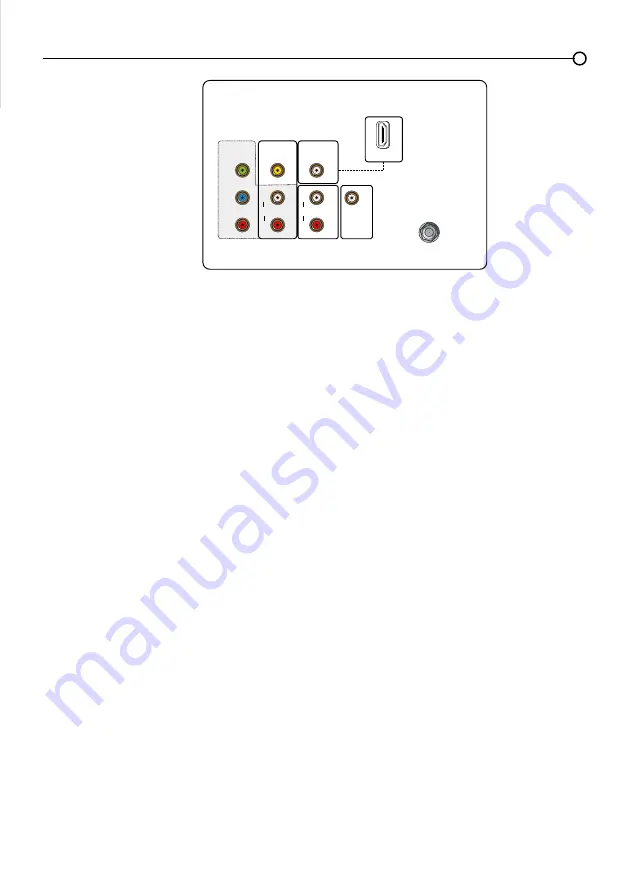
9
ANTENNA/CABLE INPUT
Lets you connect a coaxial cable to receive the signal from your antenna, cable, or cable box.
AUDIO/VIDEO INPUT (VID)
Lets you connect a component that has composite video jacks, such as a VCR or DVD player.
•
L AUDIO
Provides left audio connection when using the
VIDEO INPUT
jack. The left audio
connectors are usually white. For mono audio sources, be sure to use the left AUDIO INPUT.
•
R AUDIO
Provides right audio connection when using the
VIDEO INPUT
jack. The right audio
connector is usually red.
COMPONENT INPUT
Let you connect a component that has component video jacks, such as a DVD
player.
•
CMPT Y Pb Pr (Component Video)
Provides good picture quality because the video is separated
into three signals. Use three video-grade or component video cables for the connection.
•
When using CMPT Y Pb Pr, make sure you connect left and right audio cables to the L and R
AUDIO jacks shared with
AUDIO/VIDEO INPUT (VID).
For mono audio sources, be sure to use the
left AUDIO INPUT.
DIGITAL AUDIO OUTPUT (coaxial)
Use a digital coaxial cable to connect your TV to a compatible
audio receiver.
HDMI/DVI INPUT
(High-Definition Multimedia Interface/Digital Visual Interface) Provides an
uncompressed digital connection that carries both video and audio data by way of an integrated mini-
plug cable. Since HDMI technology is based on Digital Visual Interface (DVI), the jack on the back of
your TV is also compatible with DVI components.
•
DVI AUDIO INPUT
(used for DVI only) Provides audio connection when using the
HDMI/DVI
INPUT
jack for DVI.
Note:
If using a DVI component, remember to connect the audio cable because the DVI cable carries
only the picture signal, not the sound.
B. Rear Panel
Y
Pb
Pr
VIDEO
DIGITAL
AUDIO
OUTPUT
(COAXIAL)
ANTENNA/CABLE
INPUT
AUDIO/VIDEO
INPUT (VID)
L
AUDIO
R
HDMI/DVI
INPUT
L
AUDIO OUTPUT
R
COMPONENT
INPUT (CMPT)
DVI AUDIO
INPUT
























